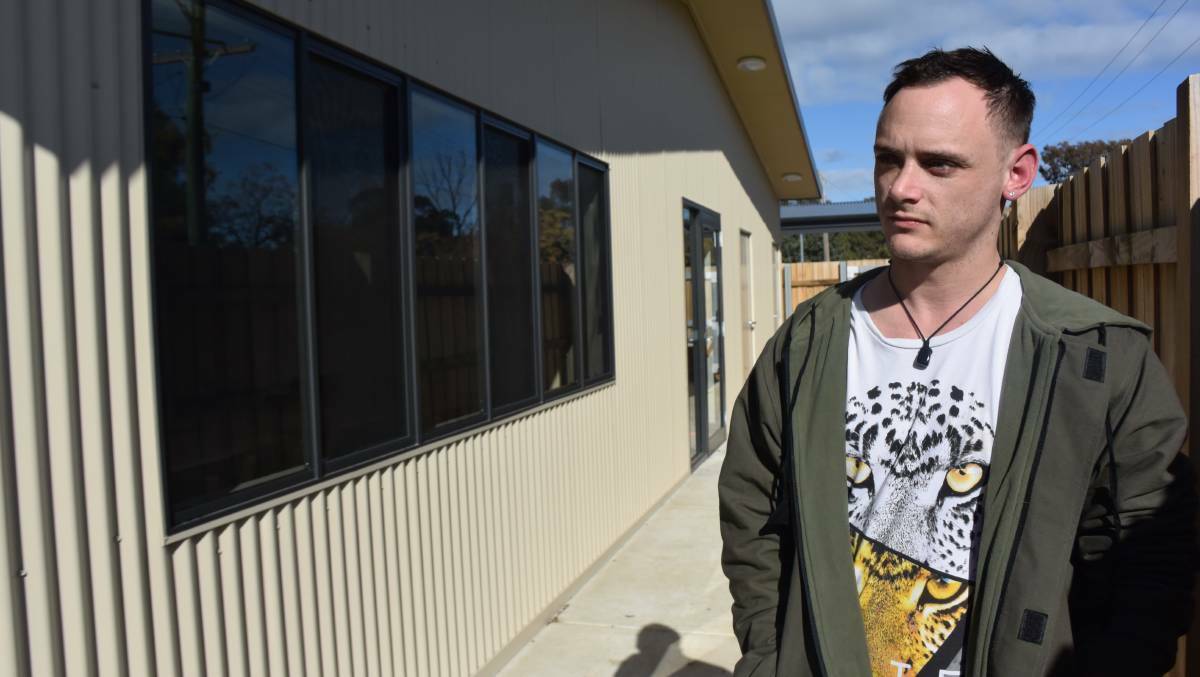A recovering ice addict who was treated at Calvary has continued his quest to hit the brakes on the scourge by revealing sensitive details of his drug-fuelled days.
Subscribe now for unlimited access.
$0/
(min cost $0)
or signup to continue reading

Earlier this year, Jay Morris was on the front page of The Advertiser when he spoke of his “ice hell”, where he went from successful travel agent to living under a bridge.
But now he has revealed he turned to prostitution to fuel his ice addiction.
In an interview with The Daily Telegraph, Mr Morris said he used “hook-up” sites such as Grindr. On the site, the report said, people use symbols to indicate whether they are willing to trade ice for sex.
Other so-called “gay slam” websites allow men to film themselves injecting ice and having sex.
You can watch people shooting up meth live on camera. These sites need to be monitored and shut down.
- Jay Morris
“The gay scene is out of control on ice,” Mr Morris told the Telegraph.
“It’s a complete free for all. You can watch people shooting up meth live on camera. These sites need to be monitored and shut down.”
Mr Morris recently finished his treatment at the Calvary Drug and Alcohol Centre (DAC).
He is originally a Sydney man and came from a “normal family”, slipping into drugs while partying in Kings Cross.
“Drugs offered me an escape to be who I wanted to be,” he said.
“I’d have a shot and two hours later I’d need another one. I’d be up 24 hours on end. I was 22, shooting up and selling myself.
“I felt like a king.
“I felt wanted, in charge, powerful.”
Mr Morris wants to work with ice users to break down the cycle.
He has been clean for 9 months and sees “lived experience” as important to recovery.
“It’s hard to speak to someone who has no experience. To speak to somewhere who’s been there is majorly different,” he said.
Calvary DAC manager Brendan McCorry praised new efforts to raise awareness about ice.
“It’s great that it’s getting more attention, but drug and alcohol work will be ongoing,” he said.
An indication of the drug’s reach, Mr McCorry said the centre was fully booked out.
He said the value of rehabilitation was important because it kept people away from a “destructive cycle”.
“You are most certainly less likely to engage in some kind of illegal activity,” Mr McCorry said.

